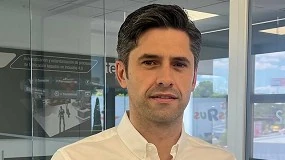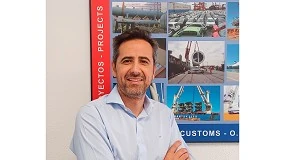This news article was originally written in Spanish. It has been automatically translated for your convenience. Reasonable efforts have been made to provide an accurate translation, however, no automated translation is perfect nor is it intended to replace a human translator. The original article in Spanish can be viewed at
El sector de la automoción asume el reciclaje de vehículos fuera de usoThe automotive sector assumes the recycling of vehicles no longer in use
Get a reuse of 85% of the weight of the vehicle from now to 2005 represents significant changes in the automotive sector. Demand at both the National Plan of vehicles out of order (2001-2006), the Council of Ministers adopted last September and the European directive governing the fate of the vehicles at the end of its useful life.
The management of vehicles out of use (OUV) is going to change substantially. Both the implementation of the new National Plan of vehicles out of order (2001-2006) and the transposition of Community directives will introduce radical changes starting with the qualification of the OUV as hazardous waste.
Another of the changes, and into the above, it is the conversion of the scrapyards in authorized centers for the collection and decontamination (CARD). From year 2003 to to cancel a vehicle owner must present a certificate of delivery on one of these authorized centers. The CARDs must meet certain minimum conditions to ensure the appropriate management of the vehicle (decontamination and recycling of components and materials).
Recycle 85% of the weight of the vehicle
The Act aims to achieve reuse of much of the vehicle. What is not so clear is how will be managed and how will pay the responsible, i.e. the manufacturer, of the costs of recycling. An alternative that has begun to take shape is the establishment of a system of integrated management of vehicles, similar to that already used in other sectors such as plastics and green point. Without going any further, last January the Automotive Division of Aguas de Barcelona (Agbar Automotive), manufacturers (ANFAC) cars, importers (ANIACAM), scrapyards (AEDRA) and workshops (CETRAA) signed the first national agreement to promote the adoption of a comprehensive management system.
Turn of reply
The Redauto Association, comprising seven technology centers in one way or another related to the automobile, has agreed to answer some questions related to the implementation of the National Plan of vehicles out of order and they set out below:
To what extent it will affect this Act to the sector of metal?
The environmental requirements and including the ability for the recycling of a component, are going to become a technical requirement more (such as for example the mechanical resistance, etc.), designers of metal components will need to think more in weight, ease of disassembly, recyclability of materials, toxicity of materials surface treatment, etc. In principle, the metals are considered recyclable materials through processes long-experienced, for which there are already consolidated recycling logistics. With current systems, approximately 75% of the weight of the vehicle which is mainly steel is recycling. Currently the only material present in an OUV which is recycled in nearly 100% is the metal, which is why metals management is already in line with the law that will come out.
The companies in the metal sector, with regard to the automotive sector, possibly not change much.
The most important impact will appear in the design of technologies of surface coating of metal parts which bypass the chromium hexavalent (or better said that to reduce it to the limits set by the new law). This factor will be influential in the early stages of design of the vehicle, but they will not have impact in my opinion in the final treatment and therefore in metal recycling methodologies.
Another factor that could have some influence is the monitoring of recovery rates, since in large installations of fragmentation, in which crushed metal sets of different origin, is not a separation of flows from OUV and other, so will be difficult to have accurate data on the rates of recovery in this case.
Is responsible for recycling a manufacturer of vehicles, or suppliers of metal parts?
The directive marks the manufacturers two responsibilities: the first is the get 85% recyclable vehicles to market. Saving the restrictions of certain compounds such as Hg, Cd, Pb, or Cr+6, now you could say that that goal is very close but outdated. In second place is the responsibility of the manufacturer that their vehicles are recycled (or evaluated) by 85% (95% in 2015), even running with management costs in the event that appear negative values.
Therefore directly responsible so that the vehicle is recyclable as recycling will always be the manufacturer. The vehicle manufacturer is responsible for payment of the recycling of them, but need not be he who recycle them. The cost of recycling at the end of the life of the vehicle therefore become more of production costs and are therefore affected by the same commercial - economic - technical criteria that apply to any other requirement in contractual relations between supplied from manufacturers of vehicles and components. If a supplier of components offers the ability to recycle the component provided at the end of the life of the same, this indirectly improving the competitiveness of their product. In any case, literally answering the question, the manufacturer of components is not responsible for the recycling of the pieces contained in a vehicle, although possibly if he forced to do so the pressure of competition, it would assume that activity.
For instance, is recovered from a car sheet may be reused again to own the car industry once washed and prepared?
The law so provides and what power, it should be possible if the political and economic aspects that affect are defined, clarified and agreed. The decision to apply a process of direct recycling (use the recycled material in the same component that is) or cascading (use the recycled material in a different component with technical requirements usually lower) will basically depend on the economy/ecology optimal ratio, for the processes involved in each case.
Recycled Yes, but it is mixed with scrap from other sectors.
Also reused, provided does not constitute an element of security. This case I think that you will not have market, unless you consider a reuse of a complete set (e.g. a door).
Do is view the agreement between Agbar Automotive, Anfac and Aniacam, Aedra Cetraa to promote a system of integrated management of vehicles no longer in use?
If you start from the premise that the system of integrated management of vehicles out of use, you should not imply economic administrations loads, because the private sector, within a free market environment, may assume that activitythe agreement between the agents mentioned seems interesting to us. It is understood that companies and industry associations that have signed the agreement, have the industrial and financial capacity to offer the service for the treatment and recycling of OUV, fulfilling the technical and administrative requirements expressed by the European directive.
The Association RedAuto, which includes seven centers of innovation: AIMME (Valencia), ASCAMM (Catalonia), CIDAUT (Castilla-León), IAT (Andalusia), IDIADA (Catalonia), INASMET (Basque country) and ROBOTIKER (Basque country), has organized this February 19 a day on the implementation of the National Plan of vehicles out of order and whose papers and conclusions will inform you them at the next Edition of MetalUnivers.
For more information: E-mail: st.adm@ascamm.es / Web: www.ascamm.com
Related Companies or Entities
Asociación Española de Fabricantes de Automóviles y Camiones
Eurecat (ex Fundació Privada Ascamm)
Fundación para La Investigación y Desarrollo en Transporte y Energía - Fundación Cidaut
Fundación Robotiker (Tecnalia)





